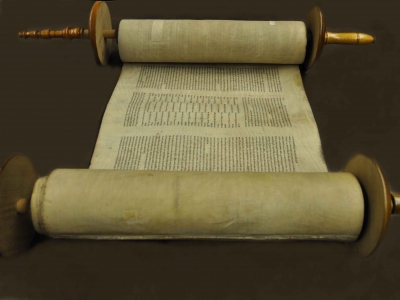The Hebrew Bible/Old Testament track prepares students to do research, engage in professional work, and teach in academic settings. Areas of strength within the program include: Pentateuch, prophetic, historiographical, wisdom, apocalyptic and Second Temple literature(s), Hebrew narrative and poetry, gender and sexuality in ancient Israel, text criticism and Septuagint, Qumran, and history of interpretation. Our faculty has broad expertise in literary, historical, social scientific, text-critical, and theological methodologies.
Our program encourages interdisciplinarity in both coursework and research. A hallmark of the program is extensive engagement with the Hebrew language and text.
For their dissertation projects, students are encouraged to use newer as well as established critical approaches in their analysis of the biblical text and the culture of ancient Israel.
Applicants must have a strong background in Hebrew, with at least two years of course work being desirable. They are also expected to have completed an introductory course in Hebrew Bible/Old Testament as well as several subsequent thematic, methodological, and/or exegetical courses in Hebrew scripture. It is strongly recommended that incoming students have some familiarity with Greek and German.
Convener: Stephen B. Chapman
Major Field Requirements
- Course Work
- Normally at least 14 courses prior to Preliminary Exams
- Languages
- Modern:
- Students are expected to pass competency exams in German plus one of the following: French, Spanish, Italian, modern Hebrew. Typically, one language exam is passed in the student’s first semester, and the second by the third semester.
- Ancient:
- Biblical Hebrew, (Hellenistic) Greek, Aramaic, and such other languages as are appropriate to the student's special interests. The Biblical Hebrew requirement (download link below) will be met by written a examination that measures competence in reading printed texts along with critical apparatuses. Greek and Aramaic competence will normally be met by course work.
- Modern:
- Responsible Conduct of Research Training
- 12 hours of RCR training in first 4 years of study
- Preliminary Examinations
- A written general examination that will examine competence for speaking knowledgeably about the field as a whole
- A written examination on current issues in biblical studies
- A written examination on dissertation area
- A written examination on minor area
- Oral defense
- Dissertation
Inside Minor Requirements
- Language
- 1 year of Hebrew
- 1-2 courses, depending on if the student takes additional Hebrew
- Bernice and Morton Lerner Distinguished Professor in Judaic Studies
- Professor of Old Testament
- Amos Ragan Kearns Distinguished Professor of Bible and Practical Theology in the Divinity School
- Professor of Old Testament
- D. Moody Smith Distinguished Professor of the Old Testament
Hebrew Bible/Old Testament
Joanna Homrighausen: "Writing Esther, Then and Now: The Materiality of the Megilah in Ritual, Memory, and Biblical Interpretation." 2024. Co-Advisors: Laura Lieber and Ellen F. Davis.
Cody David: "The Economics of Redemption and Retribution in Isaiah 40-66." 2022. Advisor: Marc Zvi Brettler
Diana Abernethy: "Profiles in Deception: Lying and Falsehood in 1 Samuel." 2018. Advisor: Stephen Chapman
Daniel Stulac: "History and Hope: The Agrarian Wisdom of Isaiah 28 - 35." 2016. Advisor: Ellen Davis
Mari Joerstad: "The Life of the World: The Vitality and Personhood of Non-Animal Nature in the Hebrew Bible." 2016. Advisor: Ellen Davis










